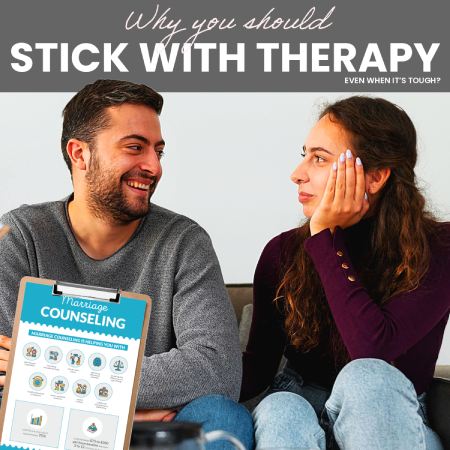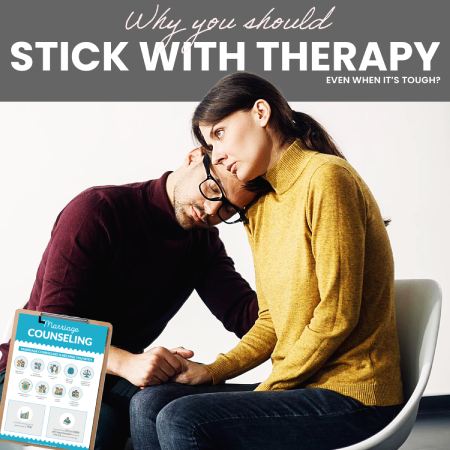Why You Should Stick with Therapy, Even When It’s Tough?
Leading marriage counsellor and couples therapist Shivani Misri Sadhoo explains why it is important to continue with your therapy even when you find it tough to handle.
When life throws us curve balls and we feel like we’re constantly running on empty, how do we navigate the maze of emotions that come with it? In a world where the pace never seems to slow down, where do we find solace and support for our mental and emotional well-being?
The answer may lie in therapy.
In today’s fast-paced world, it’s all too easy to get caught up in the hustle and bustle of daily life. From work deadlines to family obligations, the relentless demands on our time and energy can leave us feeling drained and overwhelmed. And when faced with challenges or setbacks, it’s not uncommon to find ourselves struggling to cope with the flood of emotions that accompany them.
But what if there was a way to untangle the knots of our emotions, to make sense of the chaos within ourselves?
Therapy is working for you
At first, therapy feels good. You connect with your therapist, feel understood, and learn about yourself. But then you hit a wall. You talk in circles, feel irritated, and dislike therapy. It’s normal. It means you’re making progress, confronting things you’d rather avoid.
It’s tough but part of the process. If therapy would have been easy, everybody would have been doing it. Sometimes your therapist dives deep into your subconscious to uncover painful memories. Don’t give up, it’s all part of the journey towards healing.
Improvement of Coping Skills
Did you know that our life experiences shape how we deal with emotions? Interactions with others and life events affect how we react to what happens to us. When you talk to a psychologist when you’re feeling good, it’s easier to think about things and become more aware. Therapy makes you feel safe and helps you understand how you handle emotions.
It can also help you replace unhealthy coping mechanisms with better ones. Therapy gives you a chance to learn new ways to deal with tough situations or feelings. Your therapist can show you how to spot negative thoughts and change them to feel better. This can lead to a happier mood and better overall health.
Improves Clarity of Thought
It is quite natural to feel bothered by things from time to time, even if your overall life is happy. These could include annoying habits from your partner, family discussions, or work issues. Dealing with these challenges can affect your daily well-being and long-term happiness. Talking to a therapist can help you understand and clarify your emotions.
They offer an outside perspective that can be very useful. While family and friends can help, therapists are trained to listen and provide helpful insights. Identifying your feelings and why you’re feeling them is healthy and makes them easier to manage.
Helps in Personal Growth
Therapy often helps you rediscover your inner self. It sees difficulties not as roadblocks but as stepping stones for personal growth. This psychological path lets you explore your mind and understand yourself better.
Instead of changing external circumstances, therapy focuses on how you cope and respond to them. It’s an inward journey where gaining insight helps you grow into the person you want to be, boosting your self-efficacy and fulfilment. A trained psychologist guides you with understanding and tools for this transformation.
Teaches you different strategies to handle stress better
Therapy offers valuable tools and techniques for handling life’s challenges smoothly. It provides strategies like cognitive-behavioural methods and mindfulness practices. Therapists help clients manage stress, anxiety, and depression. With practice, individuals can develop self-awareness and emotional control. This empowers them to face life’s hurdles with more confidence.
Therapy isn’t just about overcoming obstacles; it’s a journey toward self-discovery and a more fulfilling life. In essence, persisting through the challenging phases of therapy is pivotal for profound personal growth. Embracing discomfort signifies progress, honing coping skills, clarifying thoughts, fostering resilience, and acquiring strategies for stress management.
- Does Living with In-Laws Affect Your Marriage? 5 Ways to Deal - July 23, 2024
- Is Your Job Destroying Your Marriage? 7 Signs to Look for - July 15, 2024
- Do you Know How to Handle a Manipulator Effectively? - July 11, 2024

